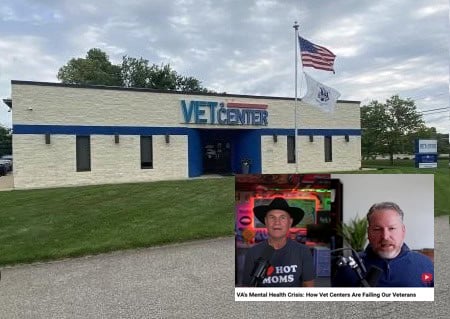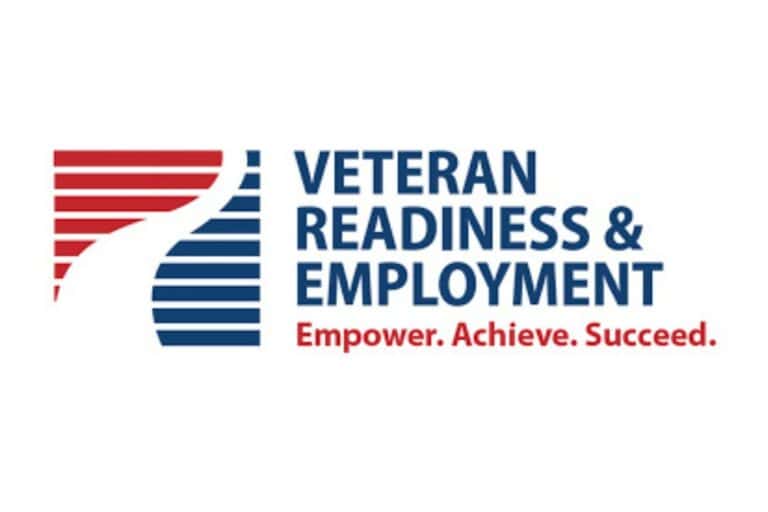Family Gets $1.7M Settlement For Veteran Suicide, Wrongful Death Linked To Vet Center PTSD Misdiagnosis
One Indiana family will receive $1.7 million for poor care of a veteran suffering from PTSD who died by suicide and was under the care of the South Bend Vet Center.
Veteran Jason Moon, 33, died by suicide at the age of 33 in 2020 while at his home. His wife and children filed a wrongful death claim under the Federal Tort Claims Act (FTCA) in 2022.
At the core of this case was chronic mismanagement, fraud, and improper use of tele-mental health services that contributed to the veteran’s suicide. The mental health services the veteran received from the South Bent Vet Center contributed to his suicide based on evidence from whistleblowers.
As a consequence of the negligence, a veteran with children ended his life from PTSD symptoms. The mental health workers knew or should have known that their wrongful acts put the veteran at greater risk of suicide.
While VA will pay $1.7 million because of the actions of the agency’s employees, the recovery will not put the family back together again. Nothing can bring Jason Moon back from the grave so his children can better know their dad.
What a tragedy.
Combat Craig Interview On Vet Center Malpractice
Combat Craig was kind enough to join me talking about the Vet Center malpractice problem that is rampant within the Department of Veterans Affairs.
The Jason Moon veteran suicide and wrongful death story is a tragic example of how bureaucratic red tape kills veterans. As is explained in the video, the director for the South Bend Vet Center scared his staff into misdiagnosis PTSD symptoms as being lesser than they were or non-existent.
The threat?
The director said that senior leadership in VA Central Office would increase scrutiny of the Vet Center if its clinicians reported more instances of veterans suffering from severe PTSD symptoms. Meaning that there existed a perverse incentive to under-report PTSD symptoms of veterans during the lockdowns and shortly after.
You may recall it was difficult, if not impossible, to see a VHA clinician in person, forcing veterans to receive PTSD treatment and therapy from home, if at all. The Vet Centers providing local support for veterans were likely reporting exacerbated symptoms of PTSD and other mental illnesses.
We now know Vet Centers across the country were likely engaged in the practice of underreporting or at least not providing the services warranted and needed by the veteran population.
The political benefit?
The current White House was not hit with reports of rampant or increased suicide risk or mental health aggravations. The negative press may have posed a bigger hurdle than the current administration wanted.
The consequence?
Veterans like Moon ended their lives earlier than anticipated and left their children fatherless. That is a cost our society can never restore.
Because of the malpractice that I address below, taxpayers are now on the hook to pay the Moon family a settlement for $1.7 million with little to no appreciable impact on the clinicians who engaged in wrongdoing leading up the to death.
Remember, a clinician has a duty to the patient that supersedes any ill-intended policy of a bean counter or director of any facility, VA or non-VA. When clinicians ignore their duty to patients, those patients are at risk of harm or death. Here, the harm was a death by suicide.
Again, Combat Craig was kind enough to cover this story with me and to report what happened to the Moon family and what is happening around the country, possibly at a Vet Center near you.
Vet Center Malpractice
Key points from this case confirm suspicions about how veterans were treated during the lockdown when seeking mental health care. It seems likely some of the behaviors are continuing unchecked within various VA mental health facilities, especially given VA’s quick adoption of VA Telehealth Services as a branch of VA.
A summary of the malpractice:
- Failure to Diagnose and Treat PTSD: Jason Moon was never properly diagnosed with post-traumatic stress disorder by the South Bend Vet Center. This critical oversight led to severe mismanagement of his mental health care, exacerbating his psychological distress and ultimately contributing to his suicide.
- Inadequate Mental Health Assessments: The VA staff at the South Bend Vet Center failed to conduct appropriate suicide risk assessments. To avoid attracting scrutiny from higher-ups, they improperly categorized Moon’s suicide risk as “low,” according to a VA Office of Inspector General Report issued in 2023.
- Negligent Care by Unqualified Staff: Moon was placed under the care of an unlicensed intern, who provided only phone consultations and failed to perform required suicide and lethality assessments. This neglect was compounded by a lack of proper supervision from senior Vet Center staff.
- Cover-up After Death: After Moon’s suicide, a follow-up counselor not only failed to return his messages but also falsified his records to hide her negligence and shift blame onto Moon, further illustrating systemic failures within the Vet Center.
- Whistleblower Revelations and Legal Action: Whistleblowers exposed “serious dysfunction” at the South Bend Vet Center, prompting legal action under the Federal Tort Claims Act by Moon’s family, which led to the $1.7 million settlement. The family’s attorney emphasized the need for systemic changes to prevent similar tragedies in the future.
Is anyone reading this list surprised?
Perhaps the settlement amount may be surprising, $1.7 million, given how challenging FTCA cases are to win given the lack of a jury option when litigating these matters before a federal judge.
That aside, problems with properly diagnosing PTSD, much less providing adequate suicide screening, is a consistent problem for the Department of Defense (DOD) while serving and VA nationwide after service.
And why might that be?
The DOD has long schemed against servicemembers suffering from PTSD to evade accountability through military medical retirements.
Likewise, VA and its medical examiners are well-known for pushing back against the diagnosis, which may lead to higher disability compensation payouts and more expensive healthcare services.
This leads up to the instant case involving the wrongful death of Moon after being mistreated by VA mental health workers in Indiana.
FTCA Malpractice Claim
The medical malpractice claim centers around the Vet Center in South Bend, Indiana.
The claim alleged the South Bend Vet Center, a part of the Department of Veterans Affairs, failed to diagnose Moon with serious post-traumatic stress disorder, resulting in severe mismanagement of his mental health care. The Moon family alleged VA failed to conduct appropriate suicide risk assessments and timely mental health care and treatment, leading to his suicide.
“My husband was failed by a system that exists solely to support the men and women who have served our country,” said LaShanda Moon.
“My five children were failed by that same system that quotes Abraham Lincoln in their promise to care for the widow and children of those who have served,” she added.
Moon, who eventually became chief warrant officer in the US Army, served two tours as a medical evacuation crew member during Operation Iraqi Freedom. He went on to serve in the Army National Guard and became a Blackhawk helicopter pilot.
Peter Bertlin, the family attorney, stated whistleblowers came forward with key information about “serious dysfunction” at the Sought Bend Vet Center that contributed to Moon’s destabilization and death.
“Money does not bring back a person. Nor does it replace a parent or spouse,” said Bertlin. “But it can provide support for their future and for their lives going forward.”
The horrors of war reportedly followed Moon home. He experienced nightmares and anxiety, leading to drinking and unpredictable, sometimes violent, behavior.
LaShanda Moon said her husband was never properly diagnosed with post-traumatic stress disorder. As a result, he ran into roadblocks trying to find psychiatric care from VA, the agency charged with providing him mental health care services.
“I have spent nearly three and a half years re-living the worst night of my life hundreds of times while trying to be the voice for my husband and the other 22 veterans who end their lives every single day, as I have demanded the VA take accountability and pleaded with them to make policy changes,” LaShanda Moon said.
Moon was reportedly placed in the care of an unlicensed intern by the South Bend Vet Center. His appointments for care were limited to phone consults.
The whistleblowers revealed the Vet Center director previously told his staff that classifying veteran suicide risk as “intermediate” or “high” would cause the Vet Center to receive increased scrutiny from senior VA leadership in DC.
To avoid this getting head from senior leadership, VA staff categorized Moon’s suicidality as “low,” a documented finding in a VA Office of Inspector General Report issued in 2023.
“The case also exposed serious errors made by the South Bend Vet Center that we hope are rectified, so no other veteran has to suffer like Mr. Moon did,” Bertlin said.
“He served his country in wartime and was owed so much better than the mental health care he received,” he added.
According to Bertlin, the intern failed to assess Moon properly and neglected to perform required suicide and lethality assessments. As a result, the veteran was not referred to a higher level of care and higher-ranking staff to supervise the health care received at the Vet Center.
Once the intern left the Vet Center, the next assigned counselor did not return Moon’s messages. After his death, the new counselor falsified records to obfuscate her negligence. The changes to the record made it appear Moon was to blame for the exacerbation of his condition.
Moon was the recipient of the Army Commendation Medal, Army Good Conduct Medal, National Defense Service Medal, Global War on Terrorism Expeditionary Medal, and the Global War on Terrorism Service Medal.
“1066 is more than a number on a file. His name was Jason Edward Moon and I pray changes will be made in his memory,” LaShanda Moon said.
The Bigger Vet Center Problem
Community counseling agencies known as vet centers are being exposed by the VA Office of Healthcare Inspections (IG) and Congress. In a February 2024 hearing, the Senate Committee on Veterans Affairs heard testimony from the IG.
“We repeatedly find evidence of noncompliance with many required processes, most notably those for assessing and documenting a veteran suicide risk,” said Julie Kroviak, principal deputy assistant inspector general in the Office of Healthcare Inspections. “Further our teams are finding repeated failures in oversight of staff training and supervision. These deficiencies can have severe consequences.”
“Veterans have the option to receive confidential mental health services separate from the [Veterans Health Administration] facilities,” said Sen. Jon Tester, D-Mont., the committee chairman.
There are 300 of these community-based Vet Centers nationwide. During the hearing, various lawmakers discussed vet centers’ popularity in their communities.
“People can let their hair down and talk to other veterans there,” Tester said.
Apparently, veterans’ hair is not the only thing being let down by these facilities.
According to IG, many of these centers are not in compliance with documenting suicide risks, and a lack of oversight is linked to staff not being sufficiently trained to counsel veterans at risk of suicide.
Problems in training and services are linked to poor staffing.
“During interviews, we frequently met with leaders in acting positions or leaders assuming multiple roles to compensate for vacancies, which are in part due to the inability to compete with the clinical salaries offered by VA medical centers,” Kroviak said. “This leads to client workload some counselors have described as unsustainable.”
Kroviak pointed to a report from the vet center in South Bend, Ind., about “leadership failures that jeopardized the care of several clients deemed high risk for suicide.”
Sen. Angus King, I-Maine, said veterans he’s spoken with believe the services they receive meet the value they seek.
“This strikes me that financial services fits well in the services [vet centers] are providing,” King said. “In my experience, the vet centers in Maine are a high-return, low-cost service. They are a very cost-effective way of serving and meeting the needs of veterans. I know our veterans appreciate it.”
Sen. Tester was also keen to support the vet centers under the microscope of IG.
“One of the things that has always appealed to me about vet centers is the same thing that appeals to me about taking somebody who has PTSD and putting them on a river fishing or riding a horse or doing yoga or any of that stuff. It is more laid back,” he said. “It’s much less structured, much more welcoming and from my perspective, when I’ve visited, the stress level is zero.”
What Do Veterans Do?
In the end, it is up to us veterans to diagnose and expose problems within VA, including its community care facilities like vet centers.
We cannot rely on IG to fix these issues stemming from VA leadership in Washington DC.
In my past two decades of tracking and reporting on VA scandals, I’ve realized one thing. Congress is generally inept at holding VA accountable in the long wrong, and the crooked bureaucrats running the agency for decades all know it.
Think back to the 2014 wait list scandal that was ultimately memory-holed. Many veterans died while waiting for appointments with their providers. It was well known since the Clinton presidency that VA leadership and staffers were gaming the system to fit their performance metrics at the expense of veterans’ lives.
What did Congress do?
They held a lot of hearings. No one within VA was truly held to account for the fraud and deaths that resulted.
The matter was ultimately used as the catalyst for Veterans Choice to allow veterans to seek health care in the community.
That may be enough for some veterans, but it does not bring back the veterans who were killed through malfeasance in support of the career of VA bureaucrats.
So, what should veterans do?
In my channels, we raise awareness of the issues and help veterans sue. That is one small part. Go find a VA malpractice attorney to sue VA on your behalf.
Hell, you can reach out to my law firm directly with questions about it: Better Call Krause.
Another part must be for more veterans to run for local elected office and for US Congress.
More veterans must put themselves out there to lead our nation. Until we take back leadership roles similar to post-WWII, veterans will continue to get abused by the bureaucracy sworn to serve us.






The
IG office is part of the problem they hold no one accountable while manufacturing cases against medicated and disabled veterans that the government broke federal prescribing laws. Nothing changes as the VA seems to care more fore illegals than veterans!
The jail and prison system in the USA encourages people to follow the law or be subject malfeasance and inhumane conditions. Similar is VHA.. encourages people to be healthy or else be subject to incompetence, malfeasance, and phoney baloney. I’m 90% disabled, but for VA purposes, I consider myself in perfect health. They help me forget about my mental health problems and diseases. Hats off..
Shame the guy died and someone else got the money instead of him being alive and able to successfully sue and win an award for the actions and inactions of the fraudulent and malfeasant entity. Insurance cards could remedy this all. No wait times, no denial of care, no evil people playing games, no abuse, no lying and malevolence.
And then nothing changes, the VA could care less just one less veteran to have to deal with, Congress does nothing, Senator Tester DOES LESS, the Director is only interested in dollars. this is the Federal System